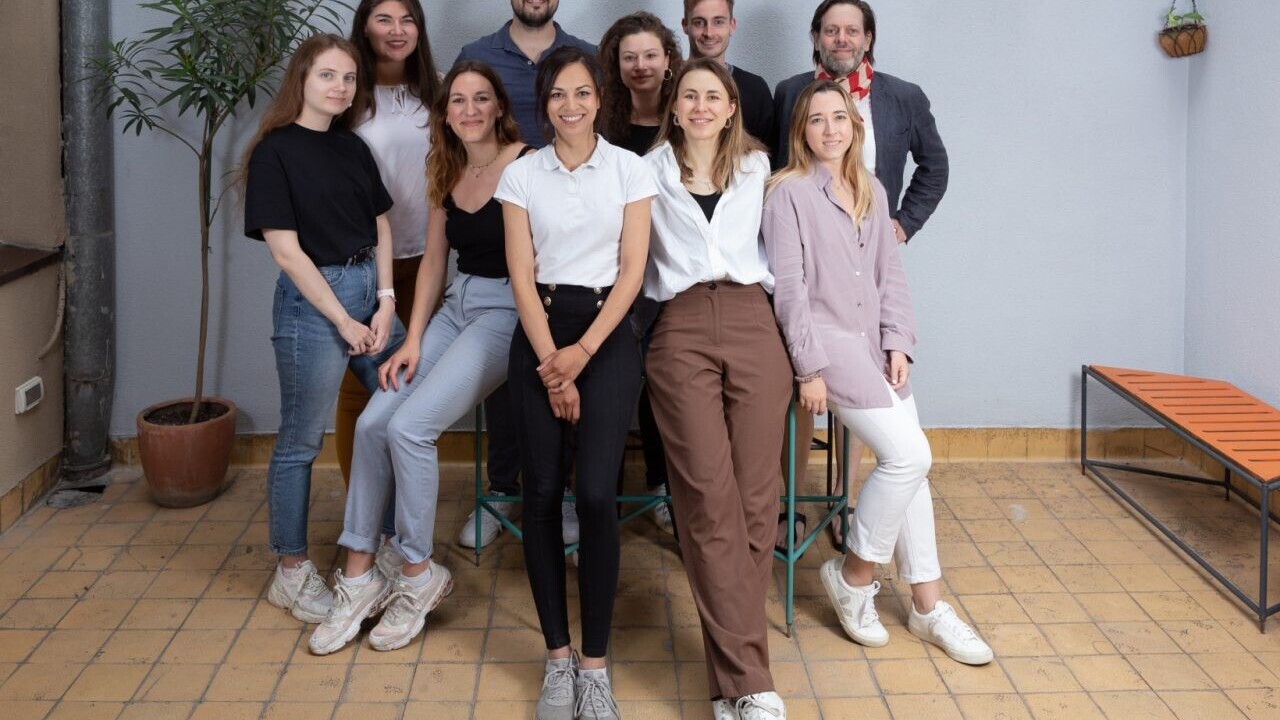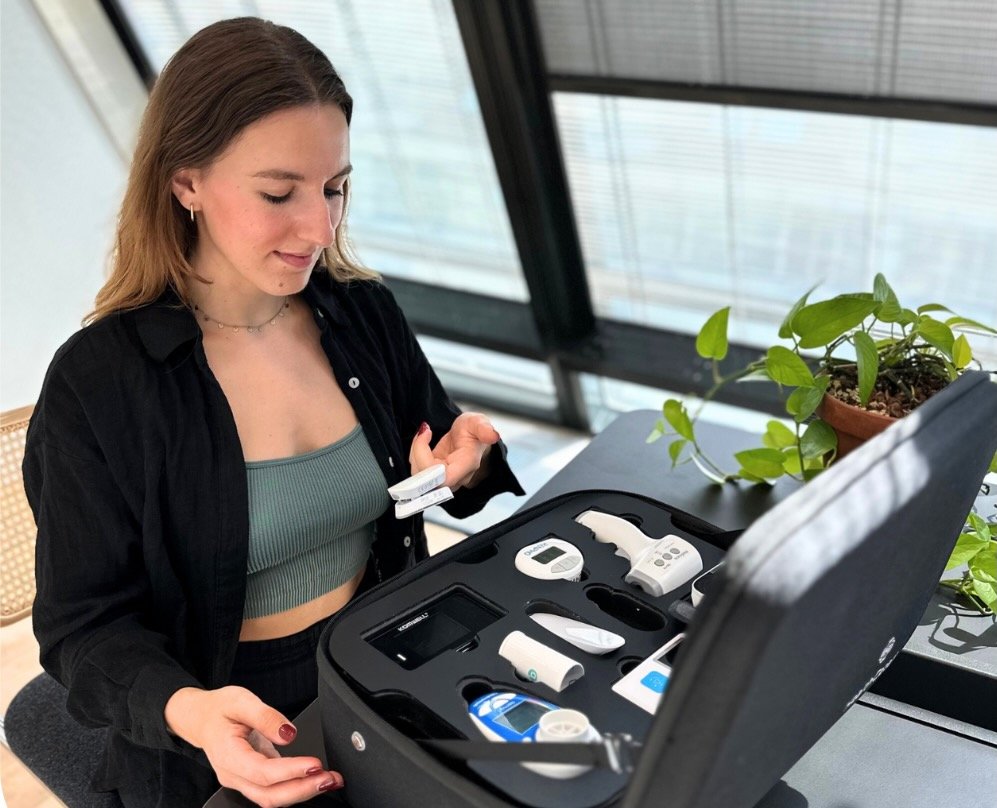
There are plenty of conversations around how AI can progress healthcare. And indeed, it has numerous applications in the form of diagnostics and accelerated drug discovery. However, wouldn’t it be even better if artificial intelligence could help prevent us from getting sick in the first place?
Anyone who has ever tried to get past (or even to) a GP in the Netherlands or any other European country feeling the healthcare capacity crunch knows that it can be a process leaving you almost as drained as being unwell itself. Often, getting access to proper care can become a matter of being able to advocate for yourself, at times across language barriers.
HealthCaters is a female-founded startup based in Berlin that wants to change the status quo of healthcare gatekeeping. Its founders say they are not simply looking to make money and grow the company. Rather, they want to change the future of preventative medicine — in a way that is accessible and affordable for all. And when speaking to its two co-founders, Yale-educated Dr Lily Kruse and ex-VC and former head of business development at medical travel platform Medigo Tanya Eliseeva, I feel that I believe them.
“I was a heart surgeon in the US. And for me, the most important thing was to help people and to make sure that they are healthy. And I realised quickly that medicine is not so much about that. It’s more about treating people who are already sick,” Dr Kruse says.
“But if you think about it, there’s so many people that are getting sick, but are not sick yet. It was quite emotional to have somebody on the operating table, knowing that this could have been prevented.”
Preventative health beyond statistics
According to the WHO, by 2030, the proportion of total global deaths due to chronic diseases (or noncommunicable diseases, NCDs) is expected to reach 70% — up from 61% in 2005. Apart from the tremendous individual suffering they inflict, lifestyle-influenced diseases, such as heart disease, chronic respiratory disease, and diabetes, are also a huge burden on health services worldwide.
Considering that in 2011, Harvard Business School predicted that NCDs would cost society more than $30 trillion over the coming two decades, it is baffling that national healthcare plans hardly, if ever, take preventive measures into account.
Hoping to function as an extension of the existing healthcare system, HealthCaters has developed what they call DIY health screenings, using a portable testing station and an accompanying app. Taking around 30 minutes, the system guides the user through a series of steps to measure things such as blood pressure, cholesterol, lung function, heart rate, kidney and liver health, metabolic health, etc.

A proprietary algorithm then analyses the results and provides a comprehensive risk assessment, including probability and factors impacting each risk. The app also provides practical advice on how to mitigate said risks, based on scientific evidence.
“It’s not just a sheet of different values, and then a thumbs up, like you’re okay or you’re not okay, and that’s it,” Eliseeva says. “We put together a very comprehensive risk assessment that allows you to understand what your actual risks are. What do I need to pay attention to? And for every risk that we identify, we show the probability and the factors that impact that risk.”
Unlike the doctor’s office, or by employing the services of a test lab, the user doesn’t just receive the numbers, but the algorithm also takes lifestyle into account to determine what the specific numbers mean to each individual in terms of risk.
“Our goal is preventative medicine that is not just statistics,” Eliseevea continues. “It’s not about having a 10% chance of developing something. It’s more like ‘what do I have to care for, in order for me to stay healthy?’”
‘Explosive demand’ from corporates
HealthCaters offers their services to corporates that can set up health screening days for employees with the portable boxes and access to the app with personalised plans. Customers include the likes of IBM, WeWork, and Barmenia. Furthermore, the startup just opened up its first centre for the public in Berlin (prices start at €39).
“We are seeing explosive demand from corporates right now,” Eliseeva says, adding that the company signed three new clients last month — no small thing for a startup its size.
“Usually we do it in the framework of a health day or health week, which means we go there and we set up, and employees can book slots. They come to the health case, and they can do the screening themselves,” Dr Kruse explains. “So it’s completely self-managed.”
Sometimes, the process is arranged by an insurance company that acts as the intermediary, which also allows corporations to lower premiums for employee insurance.
Growing a team that understands tech for health
While any startup in preventative or diagnostic healthcare over the past few years may have had to battle the ghost of Theranos in the minds of investors, HealthCaters recently secured $1.2mn in seed funding led by Barmenia Next Strategies. They will use the funds to expand the team, both on the tech and operational business side, as well as “double down” on the product.
“It’s so important to make sure that there is a strong team behind your tech that understands at what point and how to take all this technology [generative AI] in, and to implement it without jeopardising the actual essence of the product,” Eliseeva says. “Because it’s not tech for tech, right? It’s tech for health.”
Lack of accessibility increases anxiety
The company has also held pop-up events throughout Europe. Circling back to the Dutch healthcare system we referenced earlier in this article, when HealthCaters held an event in Amsterdam earlier this year, the audience was in parts unexpected.
“You always think that out-of-pocket expenses for health care is something that is upper-middle class territory. But many of the people who came to us were taxi drivers,” Eliseeva retells the experience.
“And they said, ‘Well, I tried to have a doctor’s appointment, they asked me to wait for three months. When I finally went, it was over in literally two minutes. They looked at me and said — you’re okay, why are you here?’ They said that it makes them very anxious, and this word, anxious, is repeated by so many people we talk to [in relation to healthcare].”
The company has plans to further integrate the product with wearables and data such as genetic screenings and family history. With so much personal medical data being involved, I cannot help but ask about privacy and security. Eliseeva highlights that it was not something she and Dr Kruse would ever cut corners on as it is a “cornerstone” of the product.
“Before we hired a single person, we already asked ourselves, how are we going to deal with data security? We even interviewed on the basis of what they would do with this data,” she stated, further adding that the company runs its own trial audits, and is passing on every single criteria.
Get the TNW newsletter
Get the most important tech news in your inbox each week.




